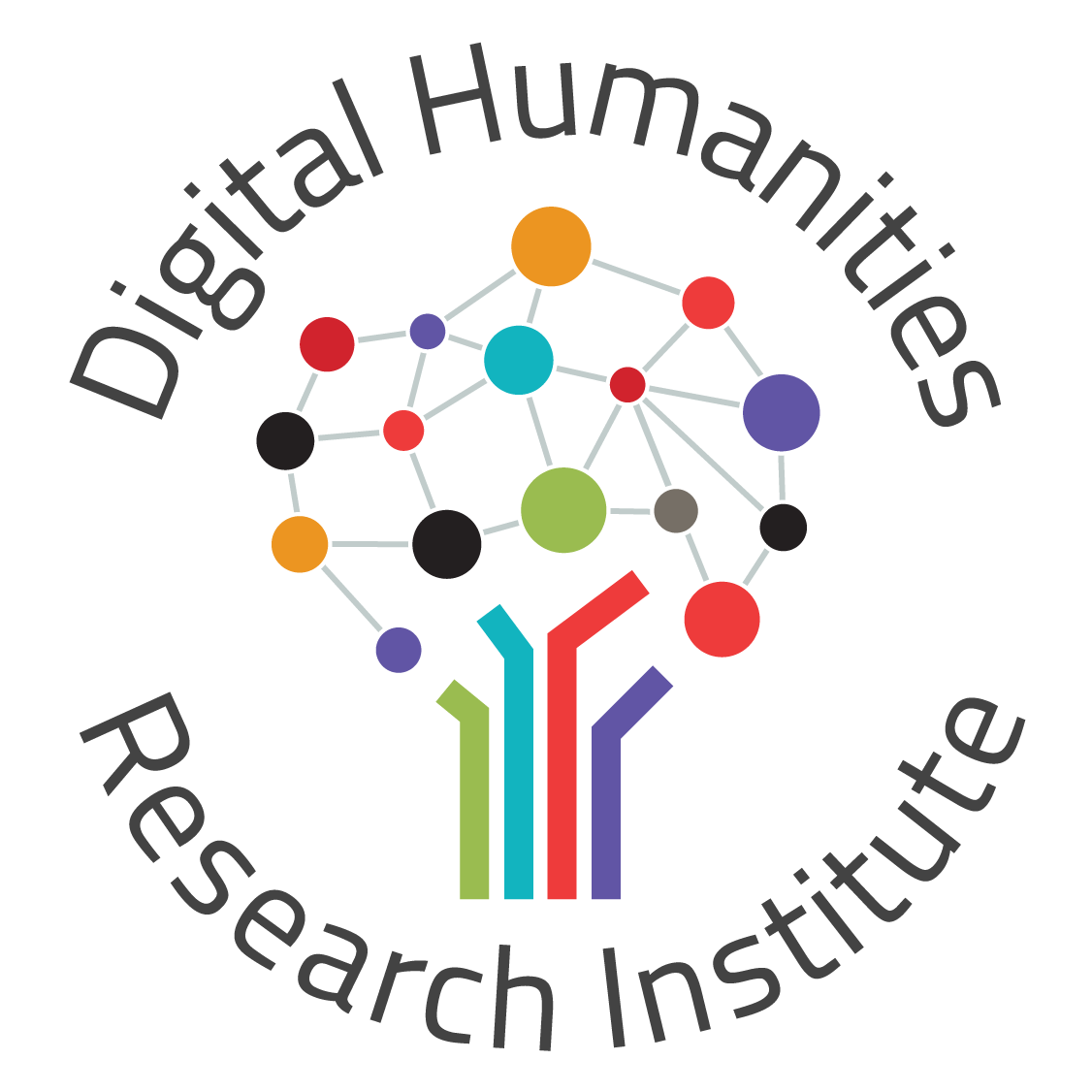
Further Expanding Digital Humanities Communities of Practice
The Digital Humanities Research Institute (DHRI) is an intensive, community-oriented, and foundational approach to learning technical skills in service of humanities teaching and learning.

The Digital Humanities Research Institute (DHRI) is an intensive, community-oriented, and foundational approach to learning technical skills in service of humanities teaching and learning.

The Digital Humanities Research Institute (DHRI) is an intensive, community-oriented, and foundational approach to learning technical skills in service of humanities teaching and learning.
When the first DHRI cohort returned to The Graduate Center in June 2019, they shared reflections about how their experience as part of the project impacted their professional development and future career goals. DHRI's ambition was to help humanities practitioners tasked with "building DH community" in their local organizations emerge as leaders. The feedback we received overwhelmingly demonstrated that every member of the cohort felt that their participation in the project helped to establish or strengthen their leadership role in DH locally. More significantly, the cohort reported feeling that their participation in the network of DHRI organizations was also an opportunity for leadership. As a collective, we agreed that a title change from "participant" to "Community Leader" better reflected the role that they wished to play in expanding DH communities of practice. Additionally, the cohort described that the experience improved their confidence as learners, teachers, researchers, and leaders, because they understood what it meant to know enough without needing to know everything. Many attendees reported an increase in title or recognition, additional funding, and greater clout among colleagues and administrators. Additional professional development outcomes noted by the cohort included: new pedagogical strategies to integrate into their teaching, new ideas about graduate education and open access to share with their local institution, and an increased ability to locate and leverage alternative resources locally.
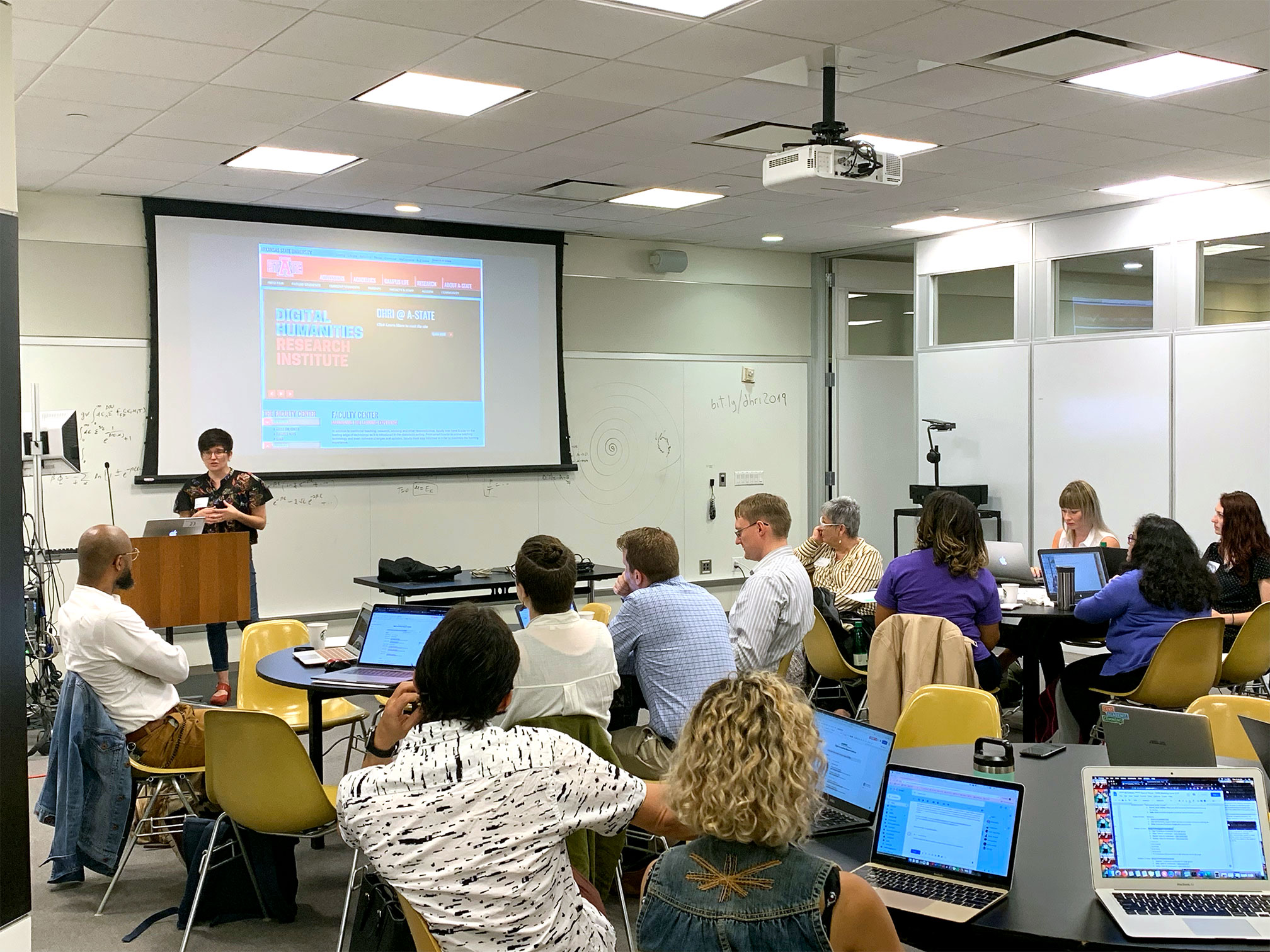
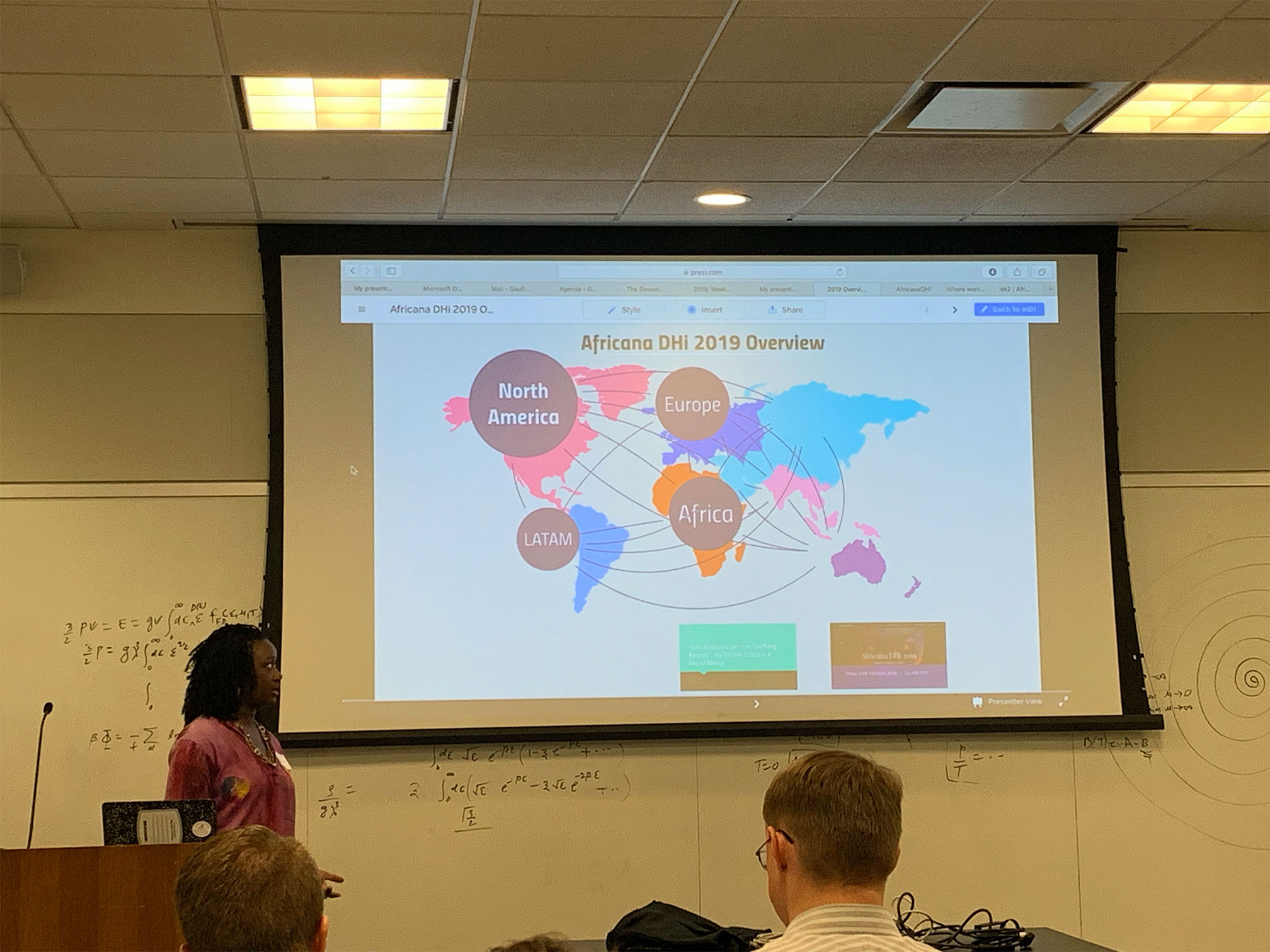
DHRI's pedagogical approach combines inclusive and critical pedagogy with a flexible set of workshops in foundational technical concepts, foregrounding humanities skepticism and inquiry in form and content. Through hands-on workshops that model peer-to-peer learning communities in the humanities, DHRI is designed to value and further develop local expertise rather than reproduce the myth that digital humanities training is best when it happens at "centers of expertise."

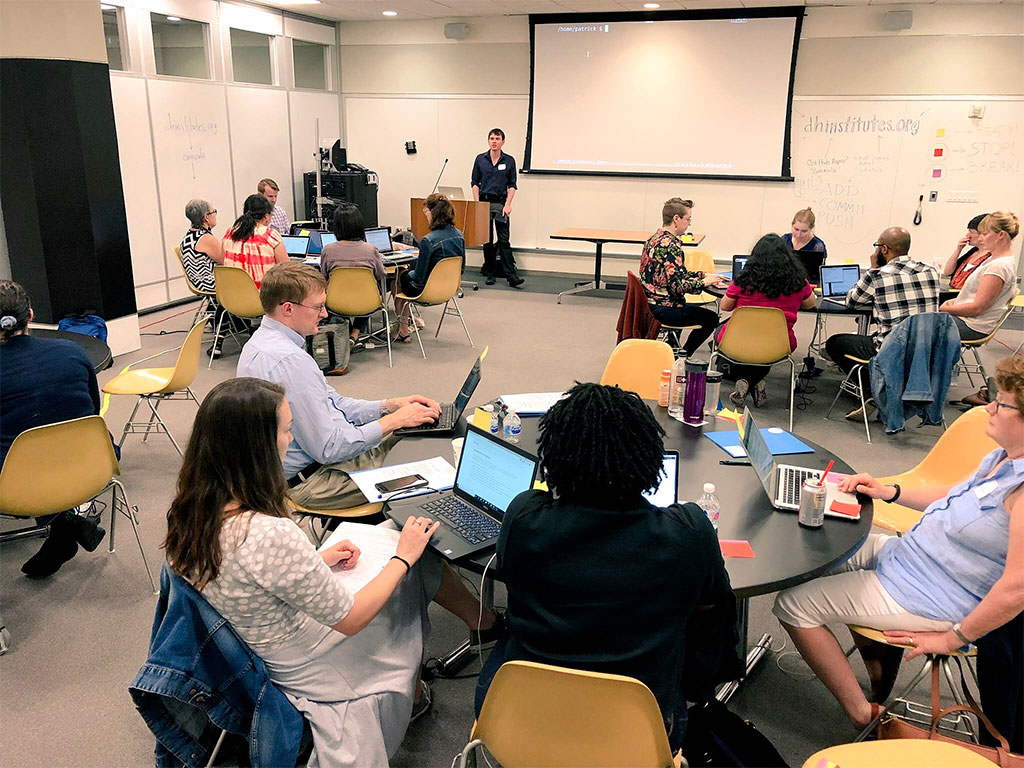
We believe that transformative and sustainable learning is most possible when it is community-based. Our workshops begin by introducing each participant as a domain expert with valuable experience to contribute to the learning community. The approach is centered on celebrating the unique domains of knowledge that each participant and each institutional setting offers. Through explicit attention to inclusive language, instruction, and discussion, we encourage instructors to implement a similar pedagogical approach in their local institutes. Our community-based approach has scaled well: the first cohort of NEH participants has become local institute leaders who in turn have fostered local communities of DH practice.
Our curriculum focuses on technical skills and concepts upon which additional technologies and tools rely. Approximately one-third of all sessions at the Institute could be described as foundational: they introduce the command line, version control & data collaboration, data & databases, and Python using flexible, open source technologies that are accessible to the widest possible audience. Our emphasis on fundamental skills demonstrates our commitment to cultivating resilience that empower humanities researchers to become self-teachers and mentors in their own right. While intensive lessons prioritize instrumental outcomes, such as whether students can write for a loop or build a map, our focus is on a longer arc of professional development. While immediate results help pique interest and help scholars see the potential for digital research methods in their own work, confidence in core computational skills and concepts help to develop resilience that lasts beyond a single project or tool's lifespan. Better prepared to approach technology (and technological rhetoric) with a critical eye, scholars comfortable with core computational literacy and a common technical vocabulary are more likely to participate in local communities of practice.
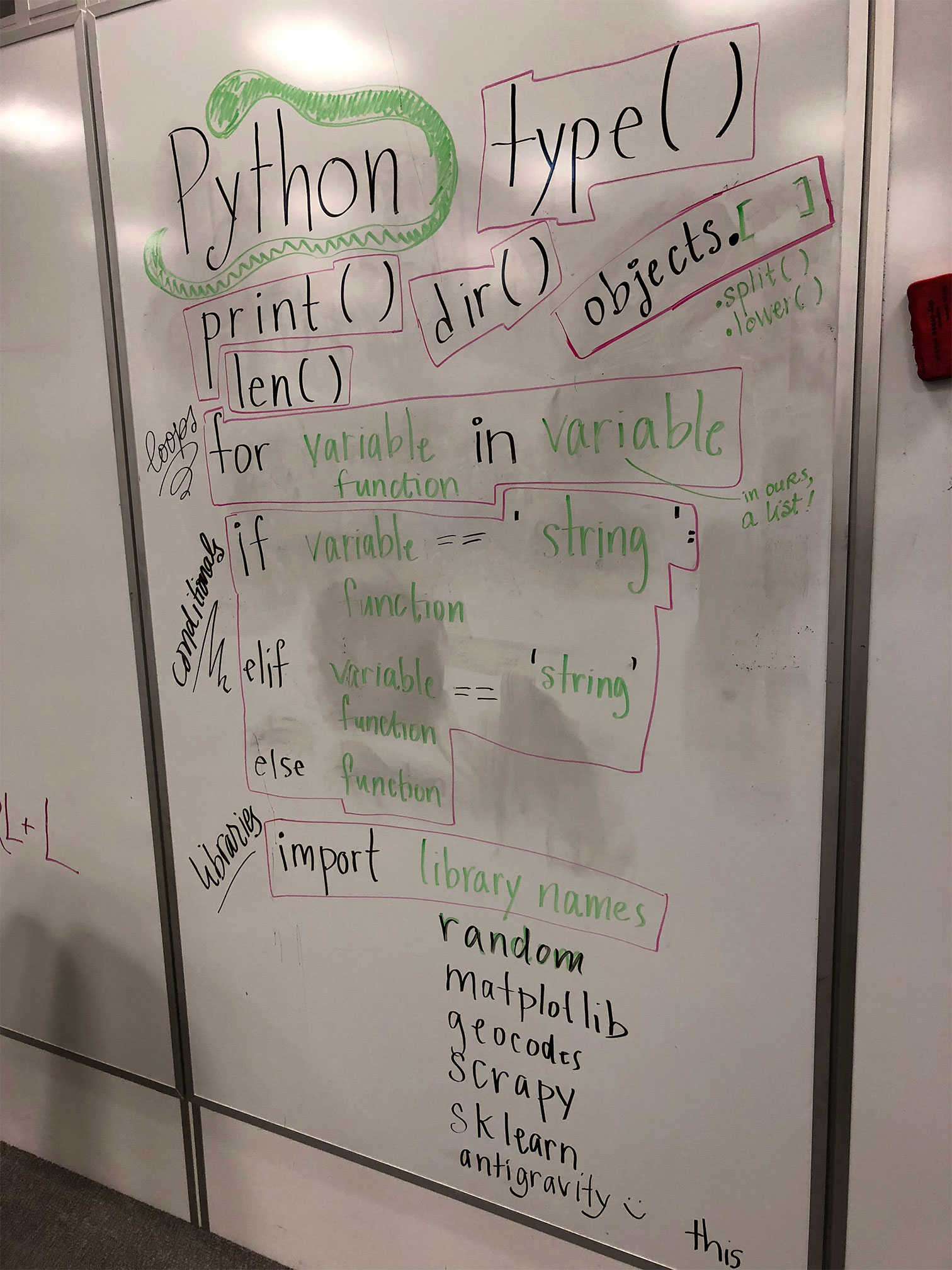
Read more about the DHRI curriculum, including the following workshops offered at the June 2018 DHRI hosted by GC Digital Initiatives at The Graduate Center, CUNY.
Command Line Git and GitHub Python Databases Text Analysis HTML/CSS Machine Learning Mapping Ethics Twitter API Project LabThe cohort consistently reported that the most significant value came from the connections they made at the June 2018 meeting in New York, and the network of support that has developed since. Exit interviews in June 2018 demonstrate a significant change from the anxieties reported by the same cohort a year earlier. Before attending DHRI, many reported they felt isolated, saying, "I'm the only one doing this on my campus," and they felt anxious about whether or not there would be interest or if they could find collaborators. However, intergroup connections among the DHRI Network Community Leaders and with the CUNY Graduate Center fellows and staff resulted in a completely different response in 2019. Combined with the support pledged by their local organizations and the prestige of attending an NEH-funded institute, Community Leaders felt confident making connections within and outside their home institutions. For example, the South Bend DHRI combined efforts from St. Mary's College and the University of Notre Dame, which led to applications for additional funding through the Indiana State Humanities Council and matching funds from their institutions. Those funds allowed them to hire graduate students from nearby Loyola University of Chicago and University of Illinois at Chicago. Those whose institutions were unable to provide additional funding or local collaborators could turn to their DHRI Network partners for encouragement, advice, and help.
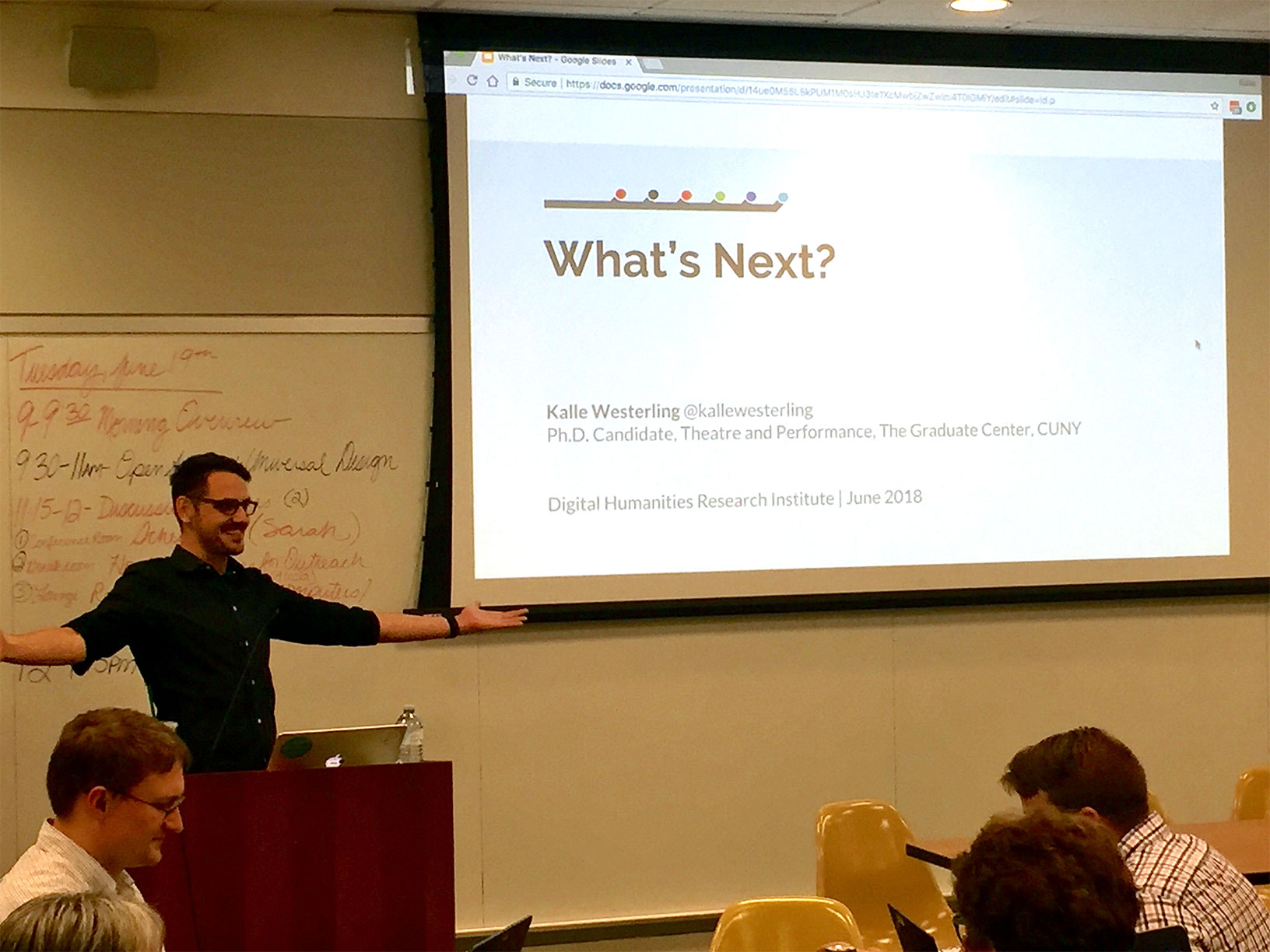
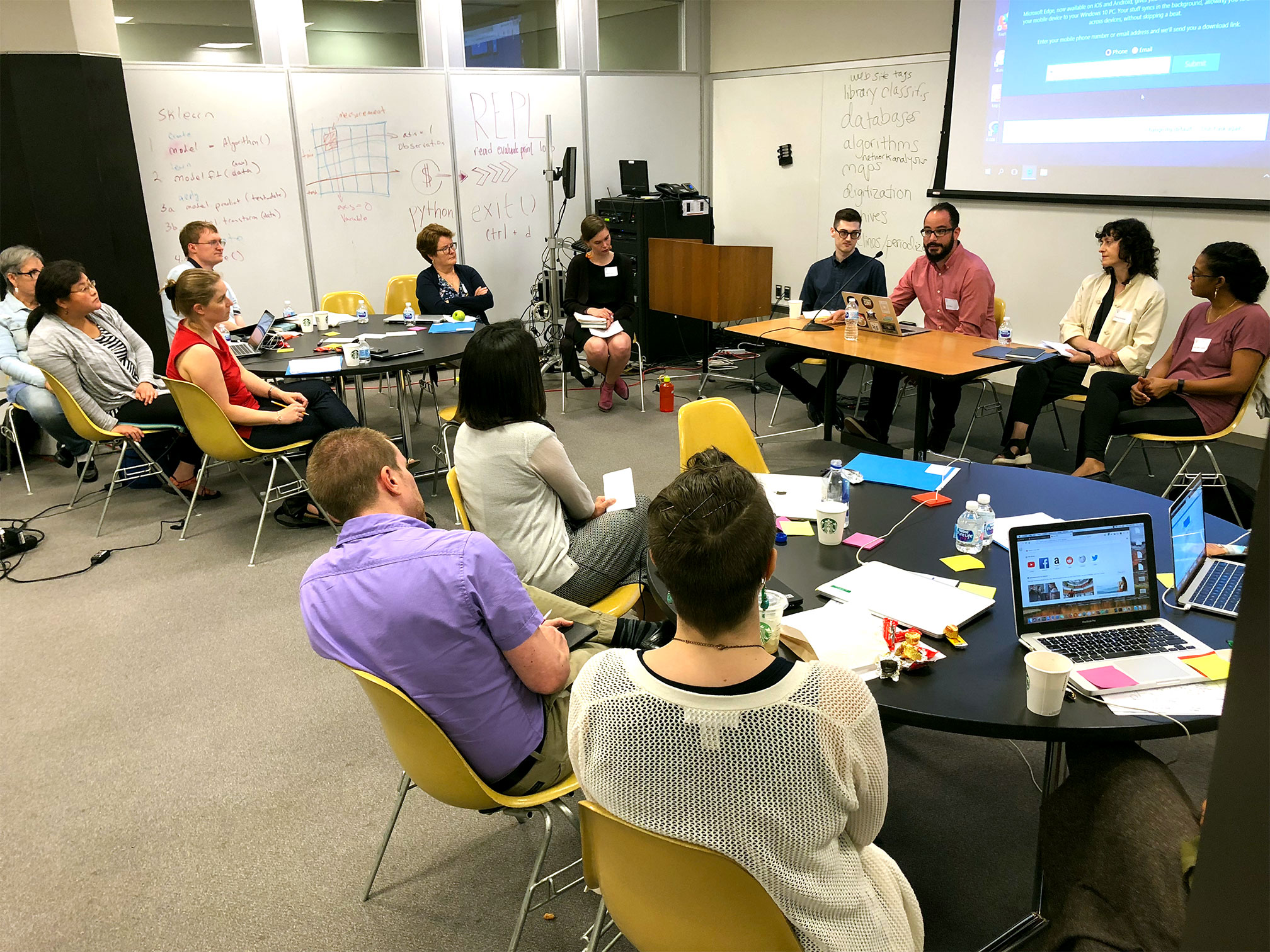
Here are a few of our current Community Leaders.
To see a full list of our current Community Leaders, visit the People page.